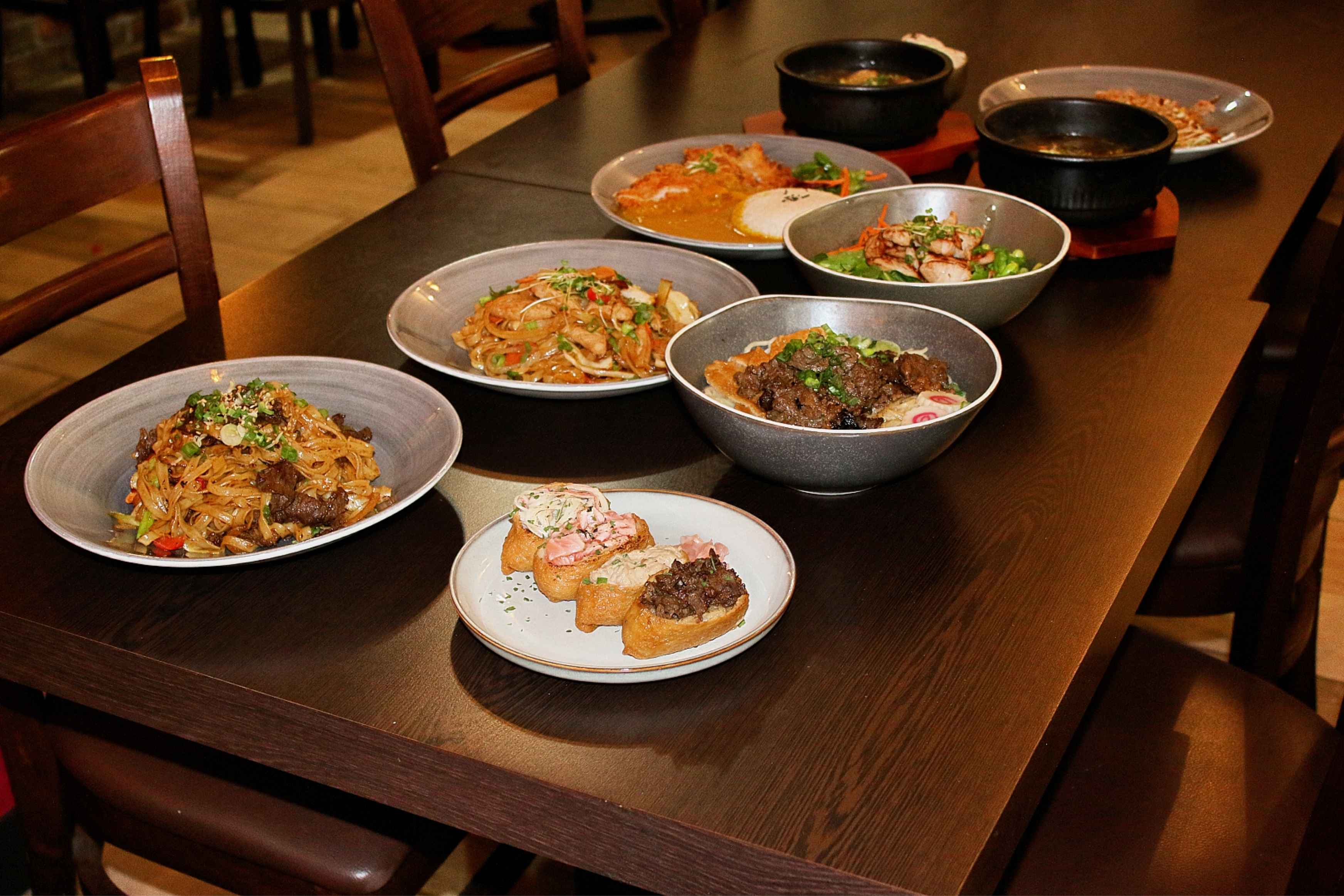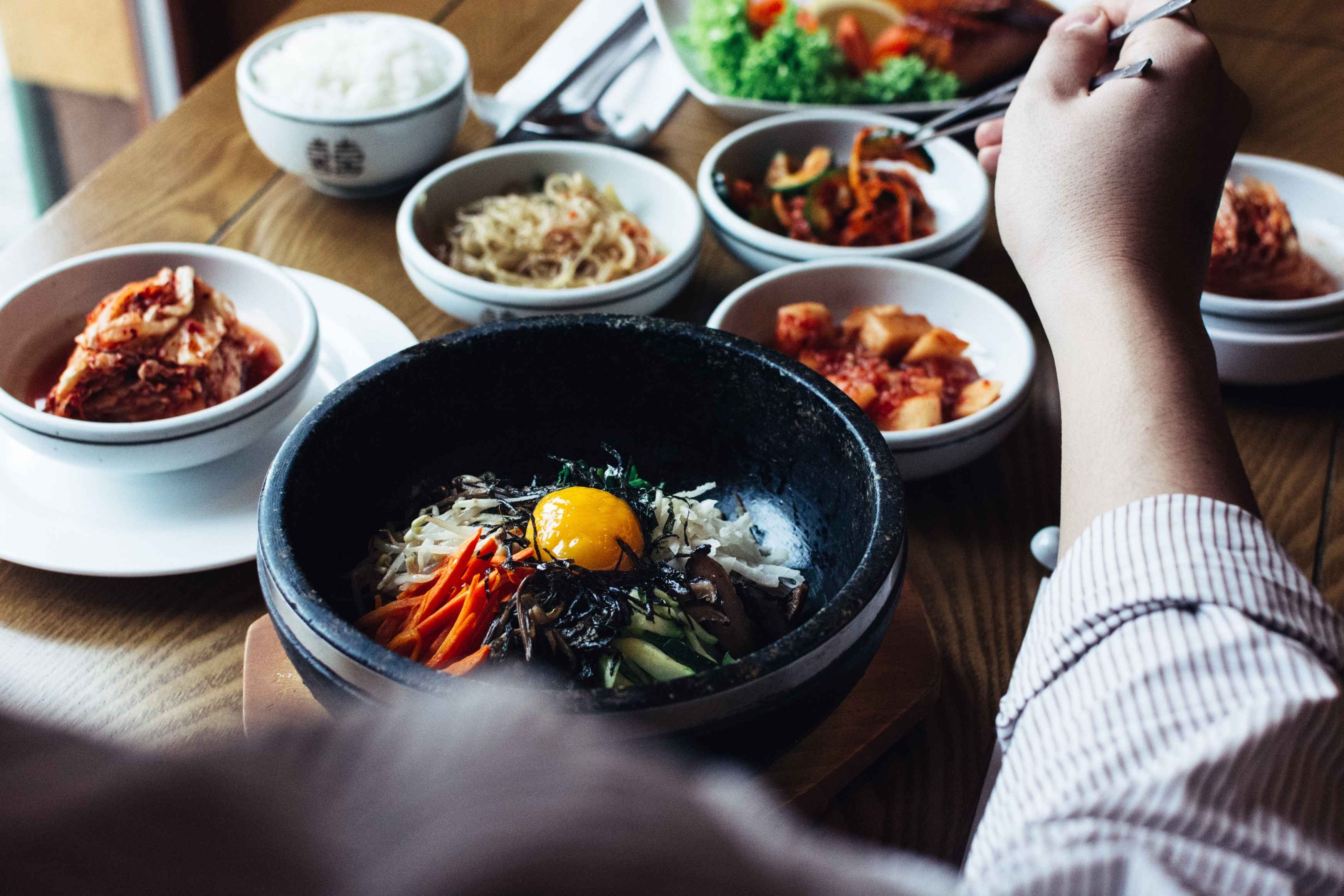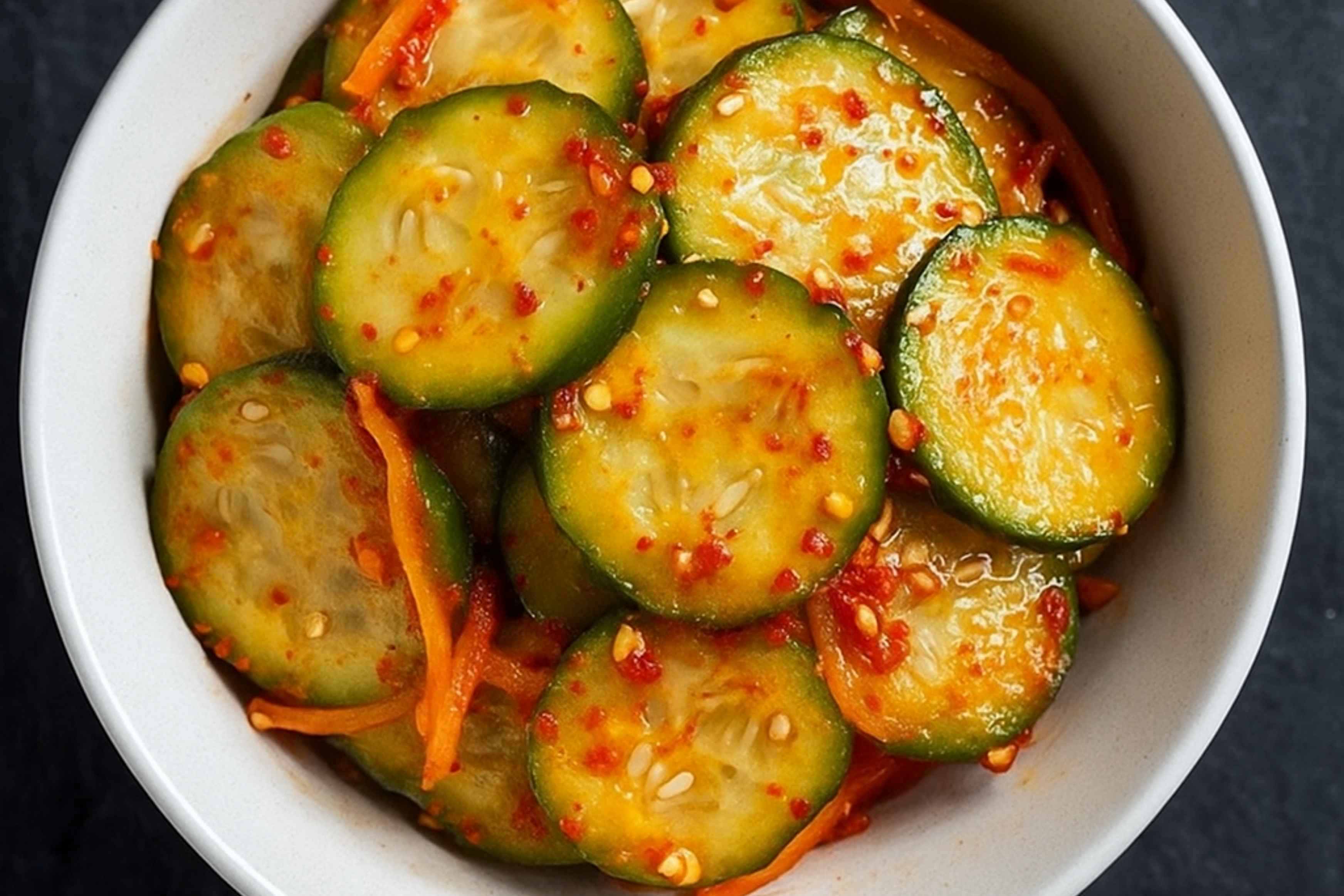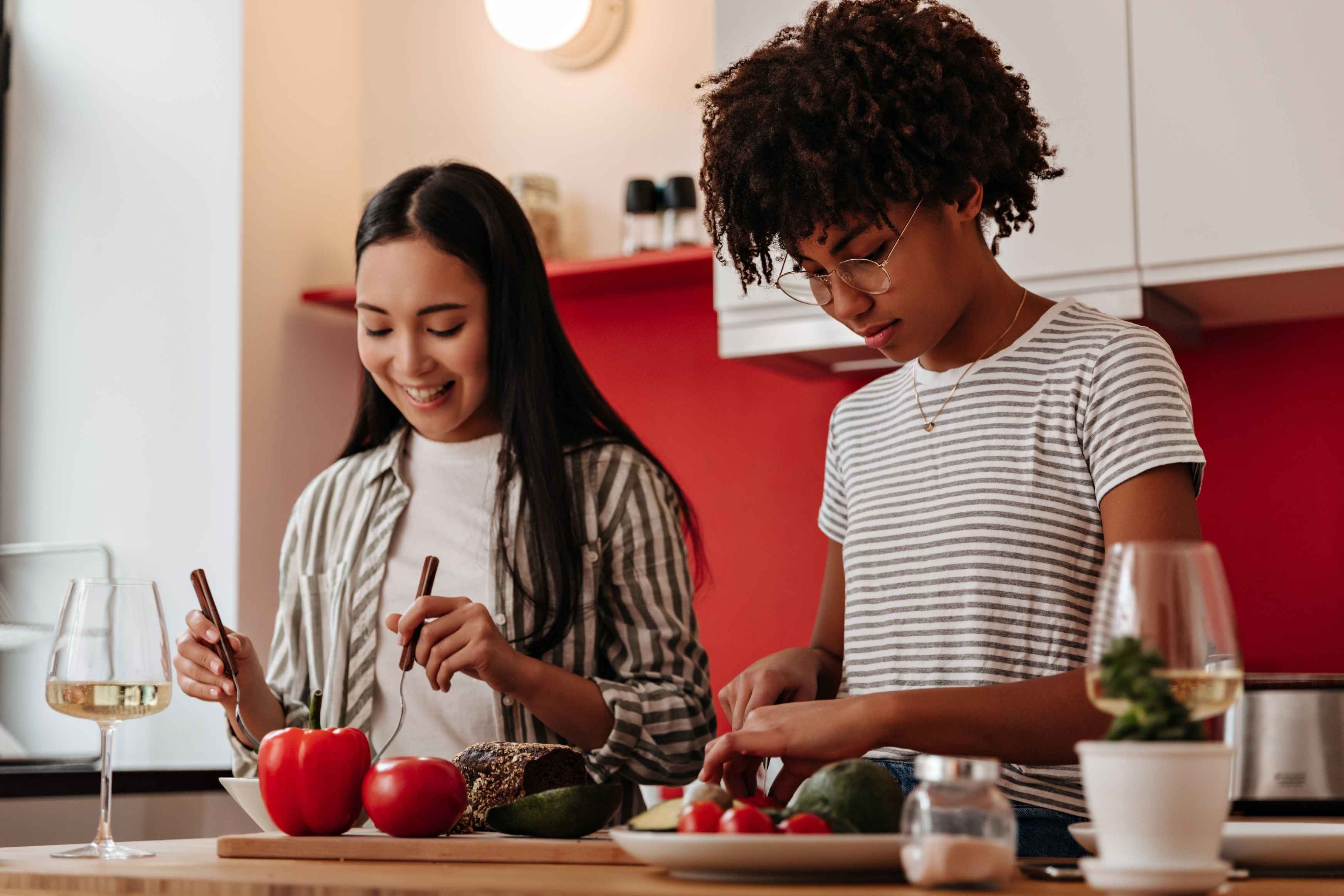.svg)
.svg)
%20(4166%20x%203603%20px).jpg)
In Korea, the festive season is a time to embrace traditions that blend joy, gratitude, and family. Christmas and Seollal (Korean Lunar New Year) are two of the most significant holidays on the Korean calendar, and both focus on food, family, and meaningful connections. For Koreans, these celebrations reflect a balance between old and new—honoring ancient traditions while embracing modern customs.
Christmas in Korea has grown in popularity and is celebrated with a unique blend of Western customs and Korean warmth. The focus is on spending time with loved ones and sharing a special meal. Dishes like tteokguk (rice cake soup), symbolizing longevity and renewal, or bulgogi (marinated beef), tender and rich with sesame and soy, often take center stage. Families also enjoy Korean BBQ, turning their holiday dinner into an interactive event where everyone gathers around the grill, laughing and savoring every bite.
Sweet treats such as hotteok (crispy pancakes with a gooey sugar filling) and yakgwa (honey cookies) make for a festive finish, often paired with a warming cup of yuja-cha (yuzu tea) or sujeonggwa (cinnamon punch).
As the joy of Christmas fades, Koreans prepare for Seollal, the Lunar New Year—a celebration that has been observed for thousands of years. Seollal is one of the most important holidays in Korea, marked by a three-day event full of tradition, family gatherings, and cultural rituals. Interestingly, many Koreans also celebrate the Solar New Year on January 1st, embracing Western customs while maintaining their own cultural roots.
For those in Korea and abroad, this means the opportunity to welcome the New Year not just once but twice! However, it is the Lunar New Year that holds the deepest cultural significance, with traditions focused on family and paying respect to ancestors.
During Seollal, the celebrations begin with wearing traditional hanbok, showcasing Korea’s rich heritage. The day centers around seh bae, a ceremonial deep bow performed to honor both ancestors and elders. Traditionally, families start the day by bowing to deceased ancestors and presenting them with food and drink offerings in a ritual called charae.
In modern families, seh bae often begins with children bowing to their elders, offering respect and receiving gifts of money along with blessings for the New Year. As everyone exchanges warm wishes—“Saehae bok manee badesaeyo!” (Wishing you many blessings in the New Year)—the holiday becomes a heartfelt moment of connection.
The Lunar New Year is also an opportunity to enjoy yutnori, a traditional Korean board game, and a feast of symbolic dishes.
Food is central to Seollal, symbolizing health, prosperity, and renewal. The highlight of the feast is tteokguk, a hearty rice cake soup believed to add a year to one’s age while ushering in good fortune. Families also prepare dishes like:
For Koreans living in the West, cities with significant Asian populations often host Lunar New Year festivities, allowing the traditions of Seollal to be celebrated globally.
Whether you’re embracing the Christmas spirit or welcoming the New Year, Kimchi is here to bring the traditions of Korea to your table. Gather your friends, family, or housemates and indulge in authentic dishes that capture the heart of these celebrations.
Here’s how you can make your holidays unforgettable at Kimchi:
Make It a Season of Connection
Christmas and Seollal remind us that the holidays are about more than just food—they’re about the people we share it with. At Kimchi, we’re here to help you celebrate the season with warmth, flavor, and memories worth cherishing.
Book Your Table Today! Let’s grill, share, and create moments together this festive season. 🎄🌙
.jpg)
You made our year sparkle! Thank you for the laughs, love, and unforgettable BBQ moments.
Read
From Sakura to Kimchi same BBQ magic, new location. Selly Oak's ready to welcome you!
Read.jpg)
Fresh food, no shortcuts—last orders 9pm Mon–Sat, 8pm Sundays.
Read
Discover why Kimchi’s Korean side dishes (banchan) bring balance, flavour, and fun to every meal.
Read%20(v2.jpg)
Fuel your week with our Korean BBQ Bento high-protein, bold flavour, and easy to prep!
Read
Healthy, flavour-packed Korean BBQ: fresh veg, lean protein, and gut-friendly sides perfect for students.
Read
Refreshing, spicy Korean cucumber salad—our staff’s summer favourite and the perfect easy recipe to make at home.
Read
Quick meals, late-night snacks, fridge raids student life isn’t always gourmet. But with a jar of gochujang, you’re turning basic into banging!
Read
Grilling meat, sharing vibes at Kimchi BBQ.
Read
Bring Korean flavours home with pantry essentials then come back to Kimchi for the real feast!
Read
Galbi-tang isn’t just soup—it’s tradition in a bowl, reimagined for modern life.
Read
From Seoul to Selly Oak: How Kimchi is Anchoring the Korean Wave in Birmingham
Read
In Korea, May celebrates family love and respect through joyful traditions on Children’s Day and Parents’ Day
Read
Celebrate Hansik with cold Korean dishes, tradition, and togetherness this April at Kimchi.
Read
Celebrate Easter with Korean BBQ, bold flavours, and fun family traditions at Kimchi!
Read
Korean street food is heating up Kimchi’s watching closely. New flavours may hit Selly Oak soon
Read
K-pop fans and students taste Korean food culture at Kimchi. BBQ, vibes, and bias-friendly bites
Read
Korean BBQ 101: The Student’s Guide to Banchan, Grilling, and Good Times
Read
A day dedicated to the sizzling, juicy goodness of pork belly
Read
Korean cuisine is all about bold flavors, rich broths, and satisfying textures
Read
Celebrate Korean New Year at Kimchi with special dishes, BBQ platters, and unforgettable shared moments!
Read
Korean-style Takoyaki: A crispy, spicy twist on Japan’s octopus snack, perfect for adventurous foodies!
Read
Mandoo (만두): Korean dumplings, perfect comfort food for students—quick, affordable, and endlessly satisfying!
Read
Crispy, savory Pa Jeon (파전): a Korean scallion pancake rooted in tradition and perfect for sharing!
Read
Topoki originated in Korea’s royal courts during the Joseon Dynasty (1392–1897)
Read
Celebrate Korea’s First Full Moon Festival with Flavor and Tradition!
Read
This Friday, January 3rd, join us for a special serving of Dduk Kuk (떡국), Korea’s traditional Rice Cake Soup that Symbolising prosperity and fresh starts.
Read
December is here, bringing chilly days and warm gatherings to Selly Oak
Read
Korean Pork Ribs, or 돼지갈비 (Dwaeji Galbi), aren’t just a delicious dish—they’re a story of community
Read
Experience one of Korea's coolest traditions: 첫눈 (cheotnun), or the first snow of the year.
Read
If you've ever tasted kimchi, you know there's something special about its spicy, tangy, and complex flavour.
Read
We take immense pride in our commitment to using only the highest-quality ingredients
Read
Great taste, and a welcoming atmosphere come together
Read
Katsu Curry: A Fusion Feast from Japan to Korea
Read
The Tradition of Tabletop Grilling in Korean BBQ
Read




